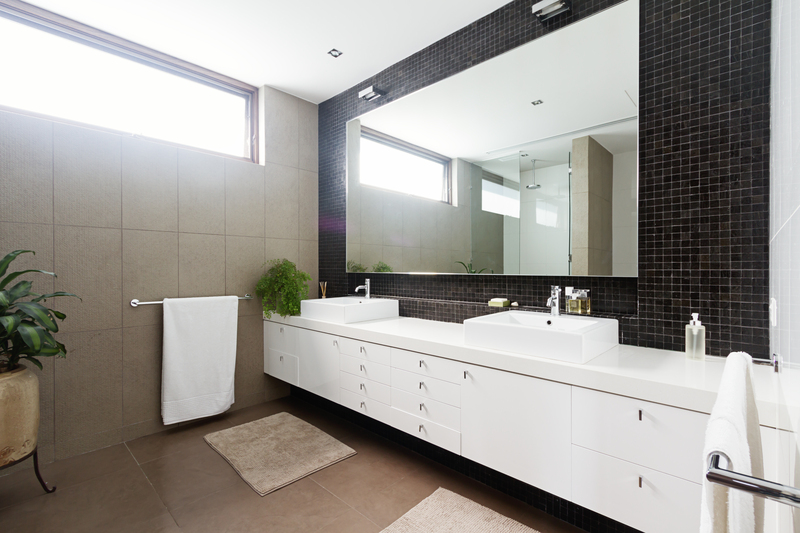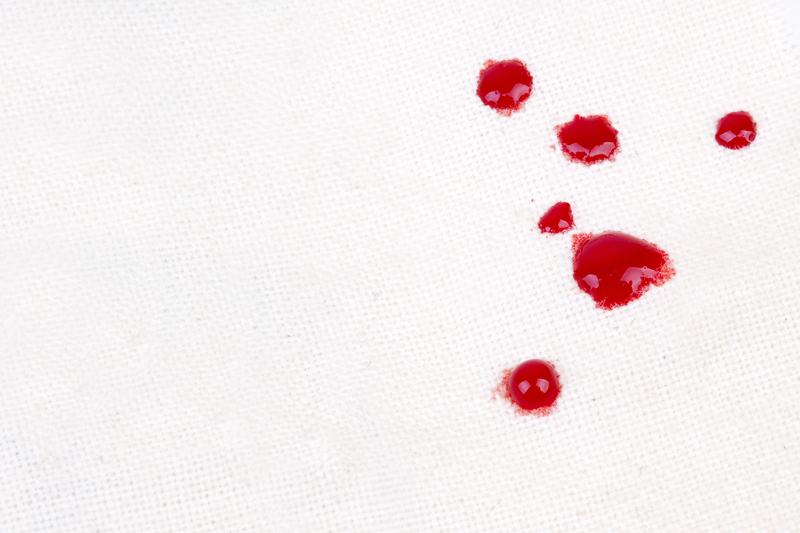Chemical-Free Homes: Natural Cleaning Tips
Posted on 04/10/2025
In an era where health and environmental consciousness are at an all-time high, many individuals are making concerted efforts to eliminate harmful chemicals from their homes. This growing trend isn't just about avoiding potential toxins - it's also about embracing sustainable living practices that can benefit the planet. In this comprehensive guide, we'll explore a variety of natural cleaning tips that will help you maintain a spotless, chemical-free home.
Why Choose Natural Cleaning Products?
Traditional household cleaners often contain a cocktail of hazardous chemicals that can contribute to indoor air pollution and pose health risks. Ingredients like formaldehyde, ammonia, and chlorine can irritate the eyes, skin, and respiratory system. Furthermore, the environmental impact of these chemicals can be significant, contaminating water sources and harming aquatic life. Natural cleaning products, on the other hand, are typically biodegradable and free from synthetic chemicals, making them a safer and more eco-friendly choice.

Essential Ingredients for Natural Cleaning
Before diving into specific cleaning tips, it's crucial to understand the basics. Here's a list of essential ingredients that should be part of your natural cleaning toolkit:
- White Vinegar: An excellent all-purpose cleaner known for its antibacterial properties.
- Baking Soda: Great for scrubbing surfaces and neutralizing odors.
- Lemon Juice: Acts as a natural disinfectant and stain remover.
- Essential Oils: Add natural fragrance and can have antibacterial properties.
- Castile Soap: A versatile and biodegradable soap suitable for a variety of cleaning tasks.
All-Purpose Cleaner Recipe
A versatile, all-purpose cleaner can be used on a variety of surfaces including countertops and bathroom fixtures. Here's a simple recipe:
Ingredients:
- 1 cup white vinegar
- 1 cup water
- 5-10 drops of essential oil (such as tea tree or lavender)
Instructions:
1. Combine the vinegar and water in a spray bottle.
2. Add the essential oil.
3. Shake well before each use.
Kitchen Cleaning Tips
- Cutting Boards: Clean your wooden cutting boards with a paste made from baking soda and water. Scrub gently and rinse thoroughly.
- Microwave: Place a bowl of water with sliced lemon inside the microwave. Heat for 3 minutes, allowing the steam to loosen grime. Wipe clean with a cloth.
- Sink and Faucets: Sprinkle baking soda over the surface, then scrub with half a lemon. Rinse thoroughly for a sparkling finish.
Bathroom Cleaning Tips
- Toilet Bowl: Pour half a cup of baking soda followed by half a cup of white vinegar into the bowl. Let it fizz and sit for a few minutes before scrubbing with a toilet brush.
- Shower Head: Remove mineral buildup by soaking the shower head in a mixture of equal parts white vinegar and water overnight.
- Grout: Create a paste with baking soda and water. Apply it to the grout lines and let sit for a few minutes. Scrub with an old toothbrush, then rinse.
Living Room Cleaning Tips
- Upholstery: Freshen up fabric furniture by sprinkling baking soda over the surface. Let it sit for 20 minutes before vacuuming.
- Carpets and Rugs: Mix equal parts white vinegar and water. Spray lightly over stains and blot with a clean cloth.
- Wood Furniture: Combine 1 cup of olive oil with half a cup of lemon juice. Apply the mixture to a soft cloth and buff your wooden furniture to a shine.
Pros and Cons of Natural Cleaning
Pros:
1. Health Benefits: Reduces exposure to toxic chemicals.
2. Eco-Friendly: Minimizes environmental impact.
3. Cost-Efficiency: Ingredients like vinegar and baking soda are inexpensive.
Cons:
1. Time-Consuming: Some natural cleaning methods require more effort and time.
2. Effectiveness: May not be as effective on extremely tough stains or heavy-duty cleaning tasks.
3. Odor: Some natural cleaners, like vinegar, have a strong smell that may be off-putting to some people.
Natural Cleaning Tips
- Always label your homemade cleaning solutions and store them out of reach of children.
- Test any new cleaner on a small, inconspicuous area first to ensure it won't damage the surface.
- Use microfiber cloths which are excellent for trapping dirt and dust.

Takeaways
Making the switch to natural cleaning products can be highly rewarding. You'll enjoy a safer home environment, contribute to environmental sustainability, and often save money in the process. While it may require some initial effort and experimentation to find what works best for you, the benefits are well worth it.
Conclusion
Transitioning to a chemical-free home is not only a wise decision for your health but also for the planet. By incorporating these natural cleaning tips into your routine, you can achieve a clean, fresh, and eco-friendly home. The journey towards a healthier lifestyle and a greener planet starts with small, mindful choices - happy cleaning!
Latest Posts
Spring Cleaning: Wellness Starts at Home
How to Sanitise Your Coffee Maker

